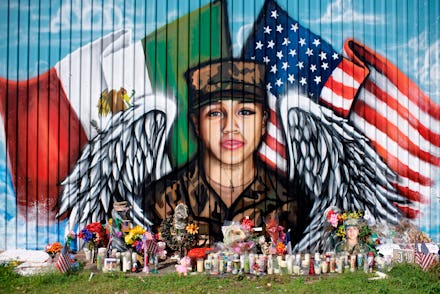This policy wants to make it easier to report sexual assault in the military
Service members will be shielded from “minor” infractions that may have occurred during the incident.

By the Department of Defense’s own count, there were more than 7,800 reported instances of sexual assault involving a member of the armed forces in just 2020 alone, the vast majority of which took place while the associated service member was on active duty. In all likelihood, the prevalence of sexual assaults within the military is actually significantly higher than the DoD’s internal tally, given the hesitancy to report instances of abuse within the armed services.
Now, a new military-wide policy hopes to increase the number of survivors willing to come forward. The new order directs commanding officers to essentially ignore certain “minor” infractions that a person may have participated in as part of the circumstances surrounding their assault, so long as those infractions haven’t jeopardized a mission imperative or caused other significant bodily or property harm as a result.
“The Safe-to-Report Policy will allow us to build on the support we strive to provide to victims of sexual assault, while ensuring due process for the accused and good order and discipline for the Force,” Pentagon Under-Secretary Gil Cisneros wrote in a recent Pentagon memo advising commanders of the new rules, as first reported by Military Times.
The policy, which covers behavior such as underage drinking, adultery, or violating military curfews, was included in the most recent National Defense Authorization Act. It was championed in Congress by Sens. Chuck Grassley (R-Iowa) and Kirsten Gillibrand (D-N.Y.), who introduced the measure early last year.
“Sexual assault is a pervasive problem across our military and far too often we are failing to support and protect survivors,” Gillibrand said in a statement last spring, when the amendment first passed the Senate Armed Services Committee. “Not only do too many survivors still fear retribution for reporting their experiences, but they also lack confidence that justice will be served if they come forward. We must do more to provide a safe environment for our men and women in uniform to report instances of sexual assault.”
While the military has long struggled with addressing how it uncovers and pursues (or not) assault among its ranks, the issue of sexual abuse in particular surged back into the public’s eye in the spring of 2020, after 20-year-old Fort Hood army specialist Vanessa Guillen was found dead, months after telling her family she’d been sexually harassed by another soldier.
“‘I am being sexually harassed by a sergeant,’ she said,” Guillen’s mother Gloria told ABC News. “‘Jesus Christ no,’ I said, ‘Have you already reported that bastard?’ [She said,] ‘I haven’t reported him Mami, because they won’t believe me. They laugh at all the girls that have gone and they don’t believe them.’”
While the Safe-to-Report policy will never solve sexual assault in the military on its own, it may nonetheless lower the barriers for reporting instances just enough to help some survivors of abuse come forward and get the justice — and care — they deserve.